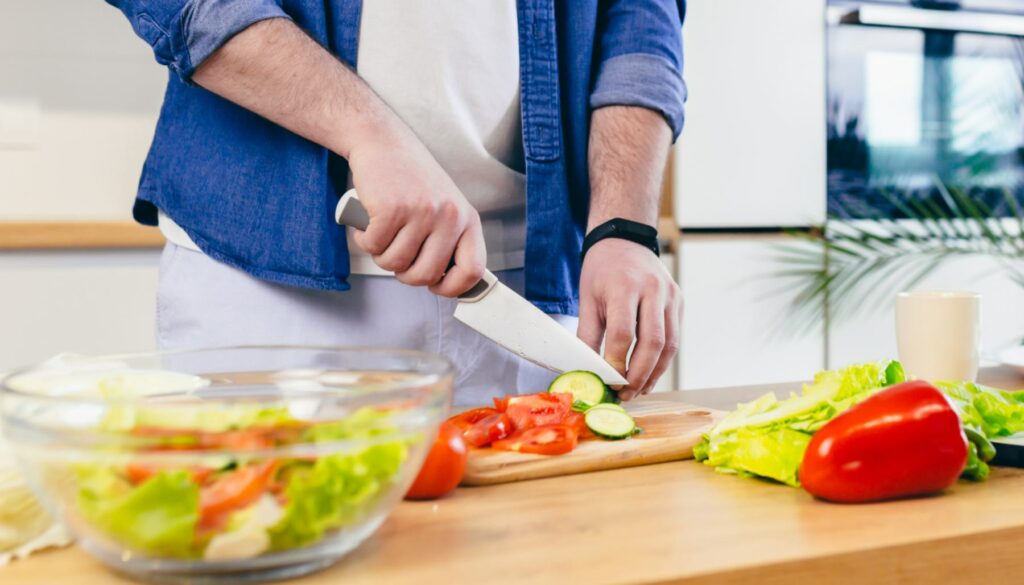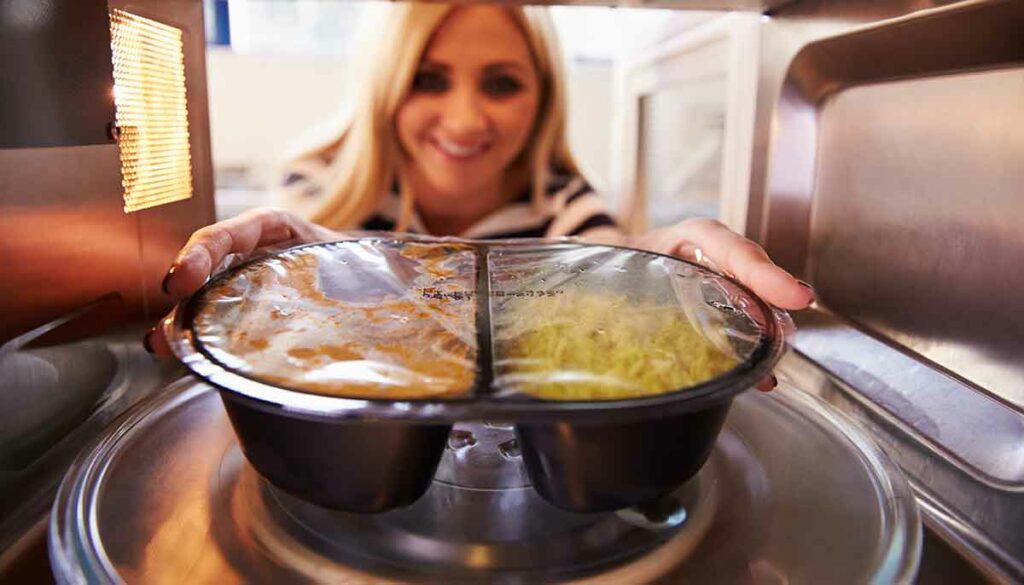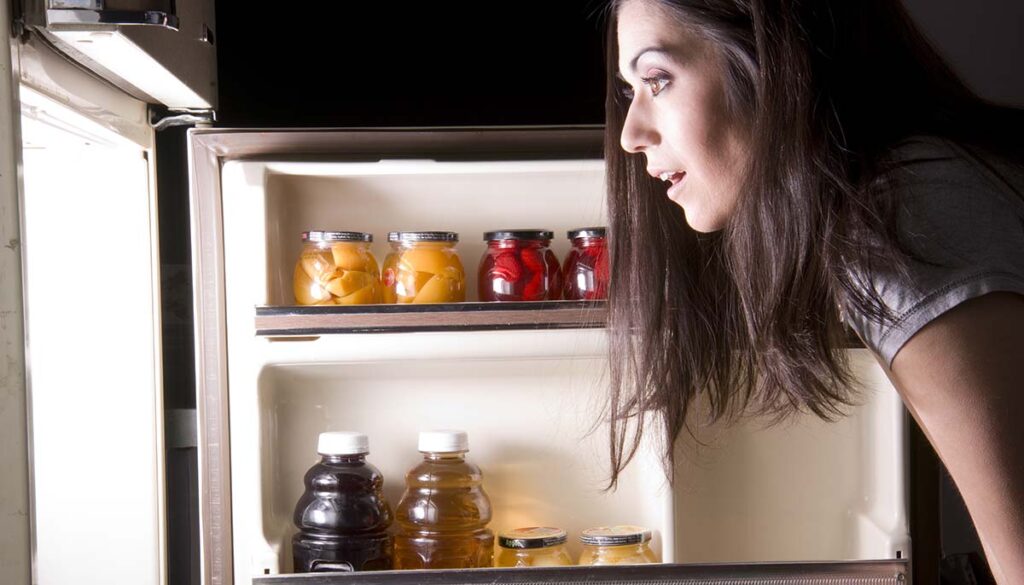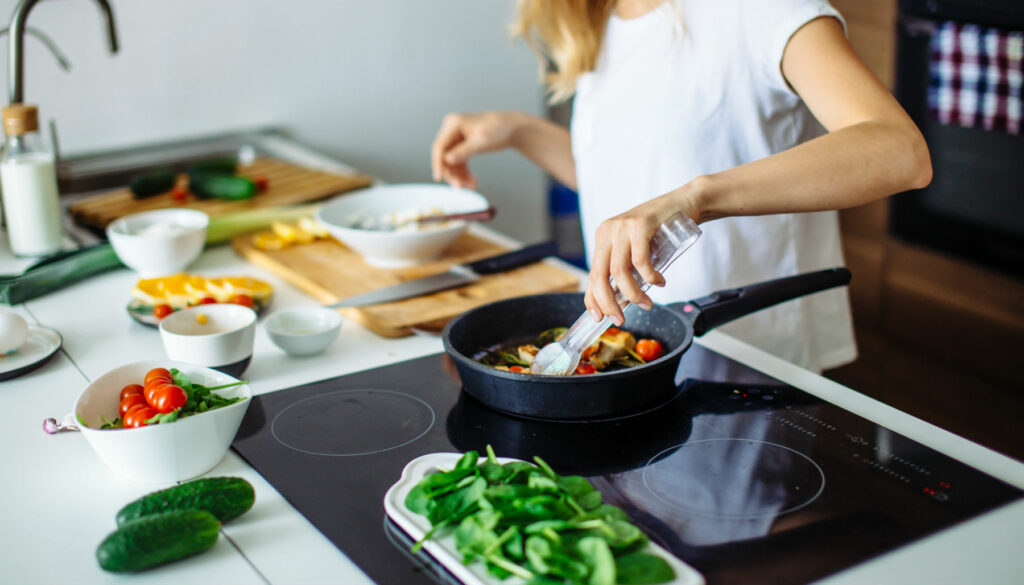Happy New Year! It’s time for all those diet resolutions, right?
Whether it’s to lose weight or to eat healthier, it seems like food always shows up on every list of resolutions.

Advice on what to eat (and what not to eat) is plenty. I’m sure you’ve heard people touting the benefits of intermittent fasting, or maybe they are praising the paleo diet. Have you tried the Whole30 program? And I heard the Atkins diet is still hanging around and as popular as ever. They’ve even roped in Rob Lowe as a spokesperson these days.
Is your head spinning, yet? It feels like trying to figure out what to eat is more complicated than ever. However, there is one thing that all the health experts agree on. We should be avoiding processed foods as much as possible, and eating more whole foods instead.
To start, let’s talk about what those words really mean.
Let’s Talk About Whole Foods
Whole foods, sometimes referred to as “real” foods, are unrefined and unprocessed. They don’t contain any added ingredients such as simple carbohydrates, salt, or fat.
What does that really mean? We’re talking about foods that are as close to their natural state as possible. In other words, any of the fresh produce that you find at the grocery store, like a head of broccoli or bell peppers are whole foods.

Okay, So What Are Processed Foods?
Alright, so when we talk about processed foods, this is where it gets a little complicated.
Technically speaking, food that’s altered in any way during preparation to make it shelf-stable, more convenient, or more flavorful is processed. That means that even a bag of salad mix would be considered processed food. However, that bag of pre-cut greens is really only minimally processed.
The real issue with processed foods is when we start looking at ultra-processed items. I’m talking about microwavable dinners, a box of macaroni and cheese, or even a can of tomato soup. These are the foods you really need to avoid. They’ve been altered with artificial flavors, colors, additives, and other ingredients.
It’s estimated that more than half the calories in the average American’s diet come from heavily processed foods.
Why You Need to Avoid All Those Processed Foods

So, what’s the big deal with eating processed foods? Heavily processed foods are loaded with unhealthy levels of added sugar, sodium, and fat – oftentimes, it’s more than we even realize. Sure, it makes our taste buds happy, but it’s doing terrible things to our health.
These ultra-processed foods are almost always lacking in any sort of nutritional value. The heavy processing actually strips the food of many of its basic nutrients. They are calorie-dense and designed to make us crave more, so we end up consuming a lot more than we should. But again, there’s no nutritional value to gain from it.
That, paired with the overdose of sodium, simple carbohydrates (like sugar), and fat, makes ultra-processed food a recipe for serious health issues like obesity, heart disease, high blood pressure, and diabetes.
Reducing the Processed Foods in Your Diet
In an ideal world, we could just stop eating processed foods altogether. Unfortunately, it would be extremely difficult, or even nearly impossible, for most people to accomplish that. No processed foods at all would mean never eating out at most restaurants, no hot dogs at family cookouts, and no potato chips. No thanks!
Instead, start slowly. We’re after the easier goal of reducing the amount of processed foods first. It may seem overwhelming at first, but once you start reducing the amount of processed foods in your diet, it will do wonders for your overall health. And once you start actively paying attention to the food that you put in your body, it will eventually become second nature.
Below are tips on starting your journey to less processed foods.
Start Slow
Just like with any other changes, you should start slow. Sudden and abrupt switch-ups never seem to stick. That’s why you abandon all those sweeping New Year’s resolutions by March!
Instead, try making slow, gradual changes. This will be more effective and sustainable in the long run, helping you to form long-lasting habits instead of setting yourself up for failure. One tiny change here, one little swap there, and the next thing you know, you’re habitually eating less processed foods without thinking twice.
Change Your Shopping Habits

Take a look at the layout of the grocery store. The outside aisles of the grocery store are the best place to shop, where produce, fresh meats, and dairy are located. The center aisles mostly consist of packaged or ready-made foods that are definitely processed. That means that you should be concentrating on those outside aisles.
Check every label while you’re grocery shopping, too. It may seem tedious at first, but your body will thank you. The longer the list of ingredients, the more processed a food is. And, if most of the ingredients are hard-to-pronounce and unrecognizable, it’s a safe bet that it’s heavily processed and you should avoid it.
Eat More Vegetables
The more fresh vegetables you purchase and prepare, the less processed foods you’ll eat. Work on including at least one serving of vegetables in every meal.
Fresh vegetables from the produce section are obviously the best choice here, but that isn’t always feasible. Although frozen and canned vegetables are technically processed, they aren’t ultra-processed foods. Just be sure you’re picking up vegetables that do not have sauces or other ingredients added to them.
Keep Healthy Snack Alternatives On Hand

Many times, people end up eating a ton of processed food out of convenience. It certainly is easier to run through a drive-thru or even grab a prepackaged snack on the way out the door. That’s why you need to get ahead of yourself before the moment strikes.
Keep your kitchen stocked with plenty of portable healthier alternatives. By keeping easy-to-grab nutritious snacks on hand, you’ll make it much easier for yourself to make healthy choices.
If you have time to prep items, overnight oats, hard-boiled eggs, energy bites, and trail mix are all great options. However, don’t worry if you’re low on extra time. Plenty of items are ready to go with no or very minimal prep, like fresh fruit, cheese cubes, mixed nuts, or veggies with hummus.
Swap Out Refined Grains
Sorry, white sandwich bread fans, but the refined grains have got to go. This is actually one of the easiest ways to reduce your intake of processed foods and boost your nutrition intake. You’re going to have to ditch white pasta, rice, bread, and tortillas.
Instead, start reaching for whole-grain alternatives. Items like whole-grain pasta, bread, and tortillas, plus brown rice, boast infinitely higher nutritional values. These whole wheat alternatives are higher in important nutrients like fiber, help to lower cholesterol, and can help prevent heart disease.
Skip the Processed Meats
I know that no one wants to hear it, but items like bacon, sausage, prepackaged lunch meats, and hot dogs are processed meats that you need to eat less of. And for anyone curious, processed meats include anything that is smoked, salted, cured, or has preservatives or other additives. These foods are associated with a lot of health problems and have even been linked to increased risk of cancers.
First of all, always check those labels! Skip them as much as you can. Instead, swap these with less processed varieties of meat, such as fresh chicken, turkey, tuna, or salmon. If possible, buy fresh meat from a butcher or local farm.
Drink More Water

Okay, drinking water is just good for your health in general. We all know that we should be drinking more water, right? But when you’re trying to cut out processed foods, water can be a great way to not only improve your overall diet but also cut back on your intake of processed foods.
Sugary beverages like fruit juice, sports drinks, and soda are all high in sugar but essential nutrients are non-existent. In other words, they’re just a bunch of empty calories.
If you’re not the biggest fan of plain water, infuse water with fresh fruit or herbs for a burst of flavor. Sparkling waters or naturally flavored waters are also good alternatives, as long as you check to make sure they don’t contain sweeteners.
Spend More Time in the Kitchen

People are eating more processed foods than ever, partially because they’re spending less time in the kitchen. If you have the ability, set aside more time in your life to prepare and cook. This will give you complete control of what you put on your plate and into your mouth.
Of course, that extra time in the kitchen should be used cooking healthier alternatives to ultra processed foods. You will have to use recipes that do not call for prepackaged items like canned cream of mushroom soup, Velveeta (I’m sorry!), packets of onion soup mix, Hamburger Helper, and the like. Don’t worry – you can still use time-saving appliances, like a slow cooker!













